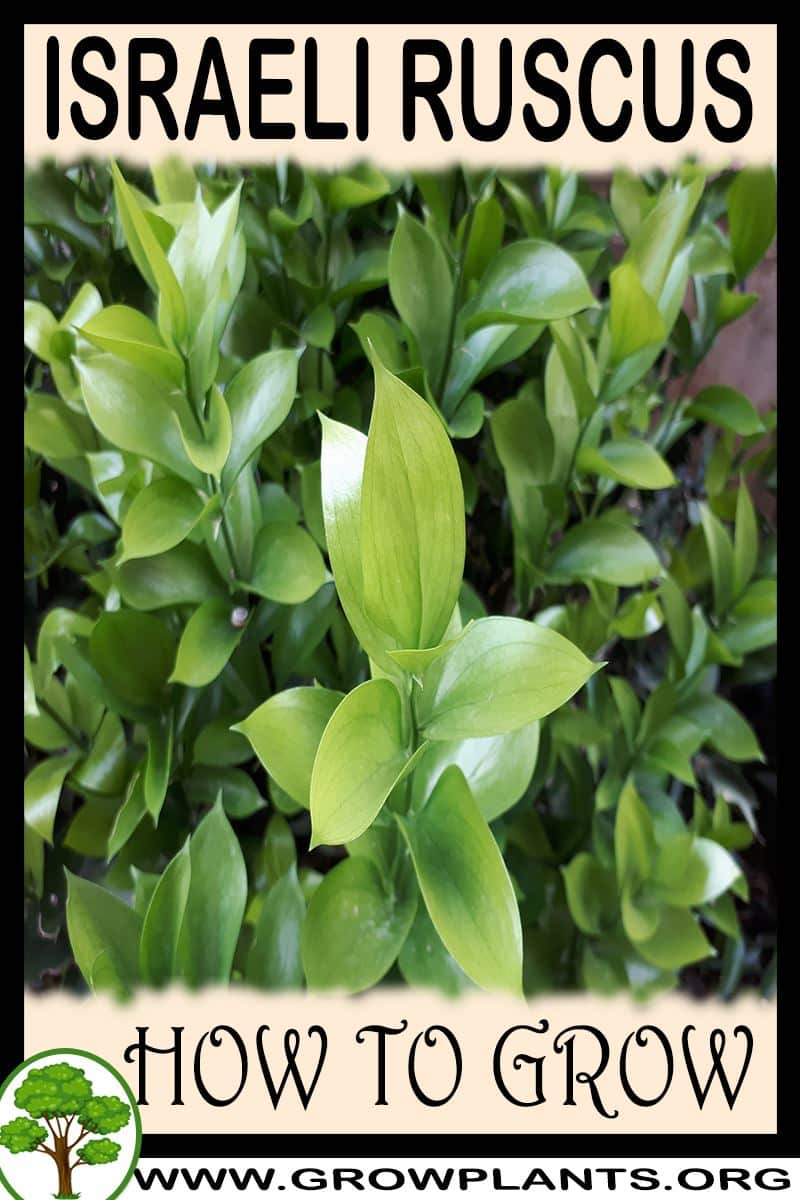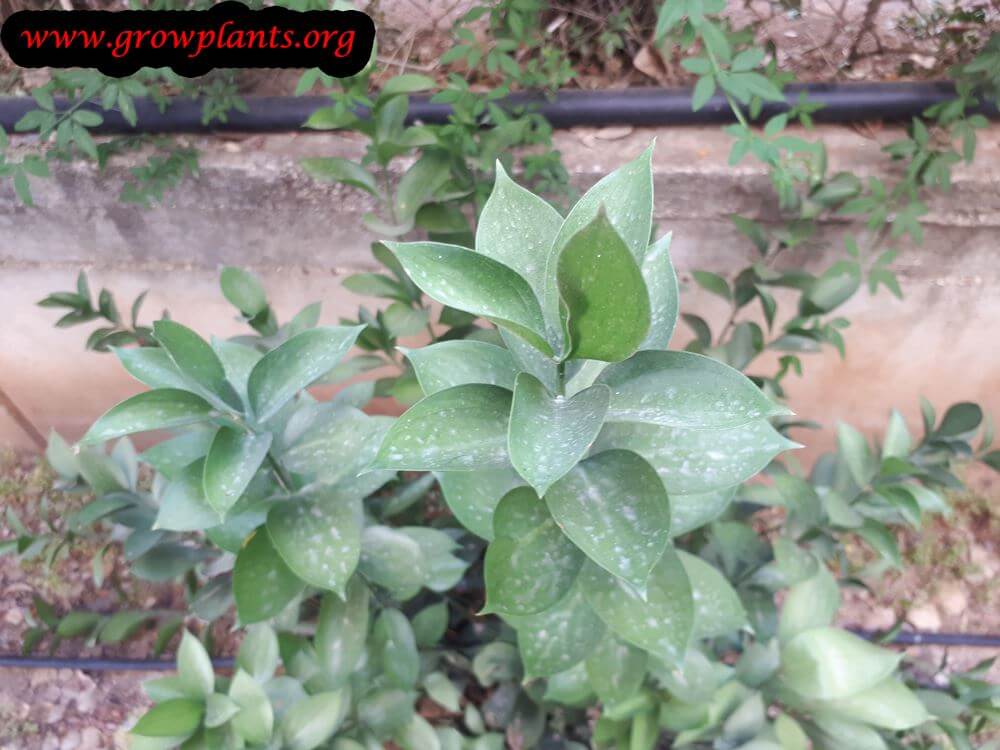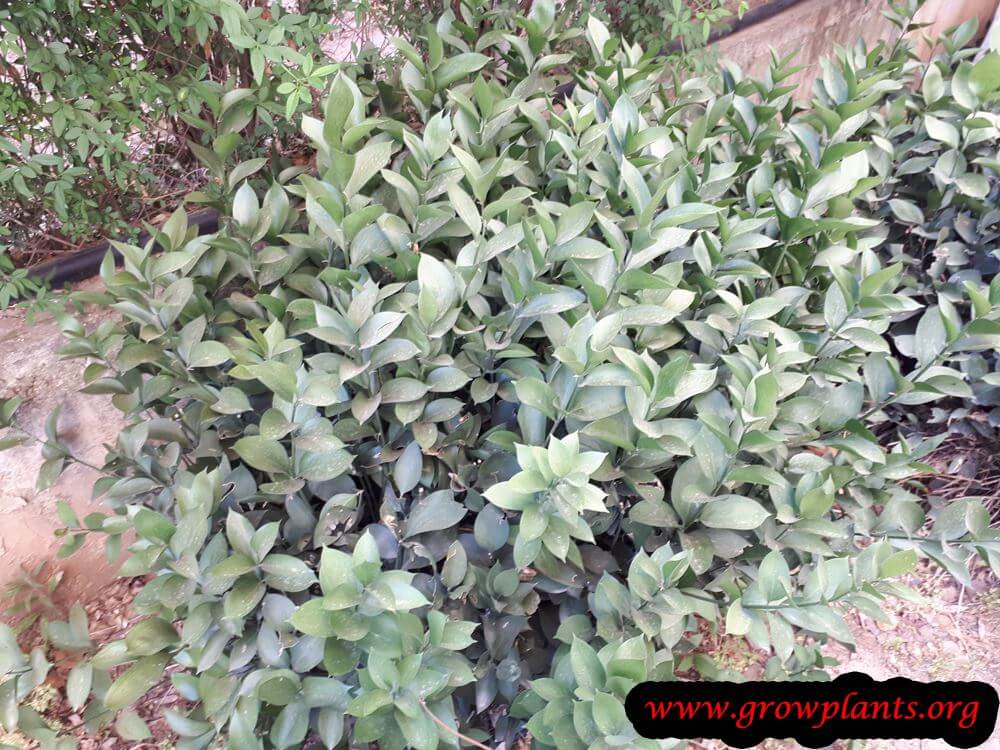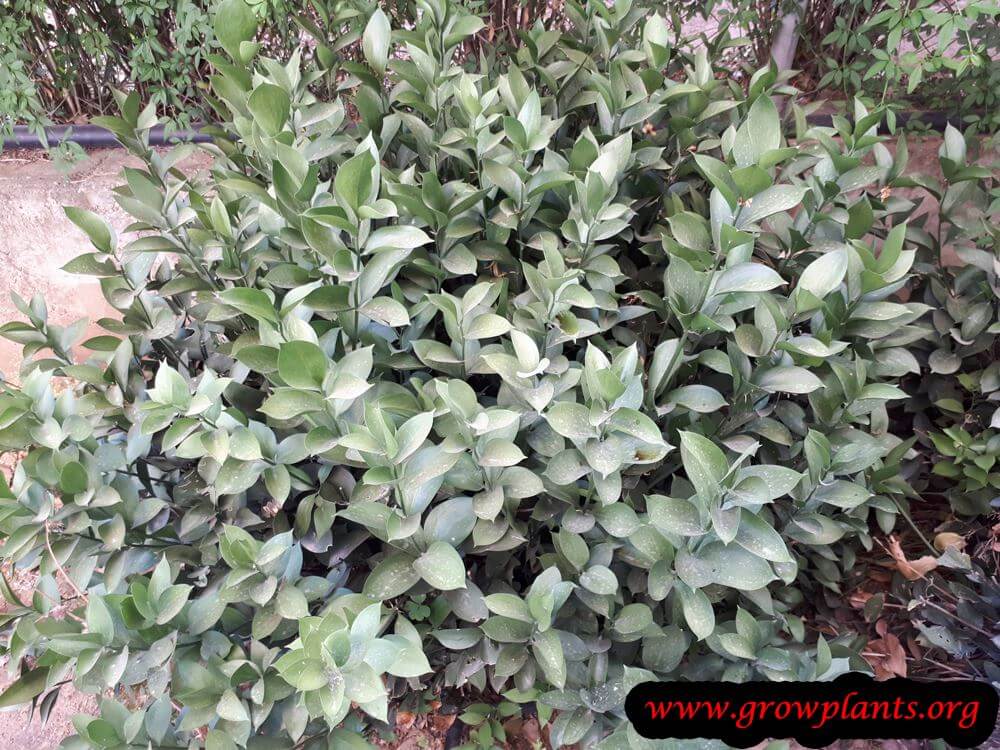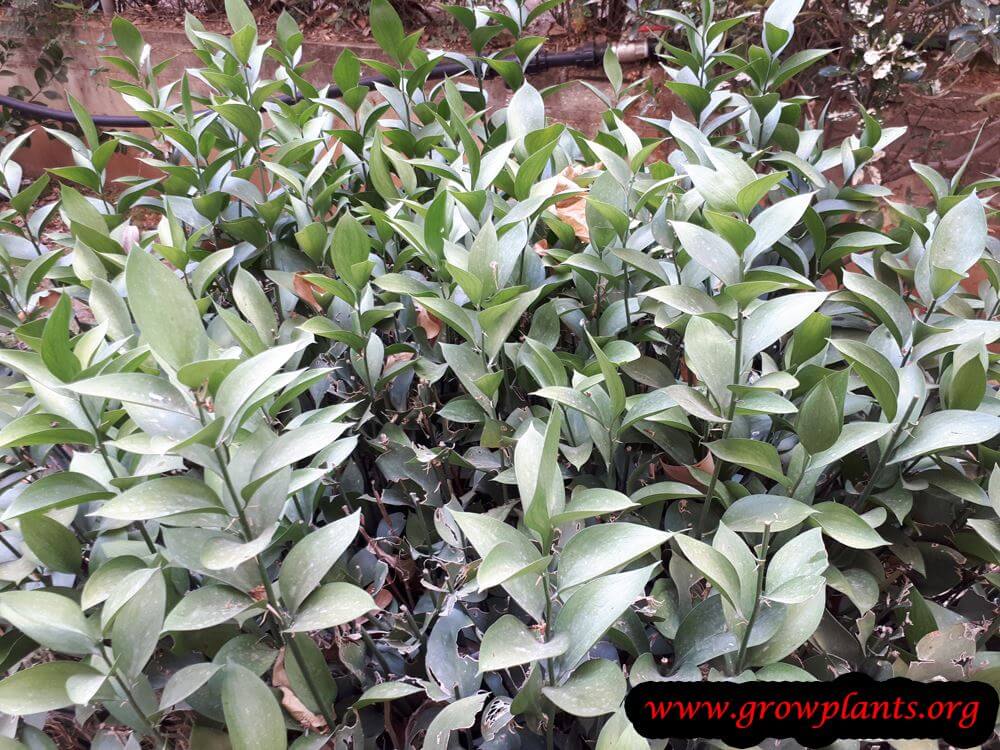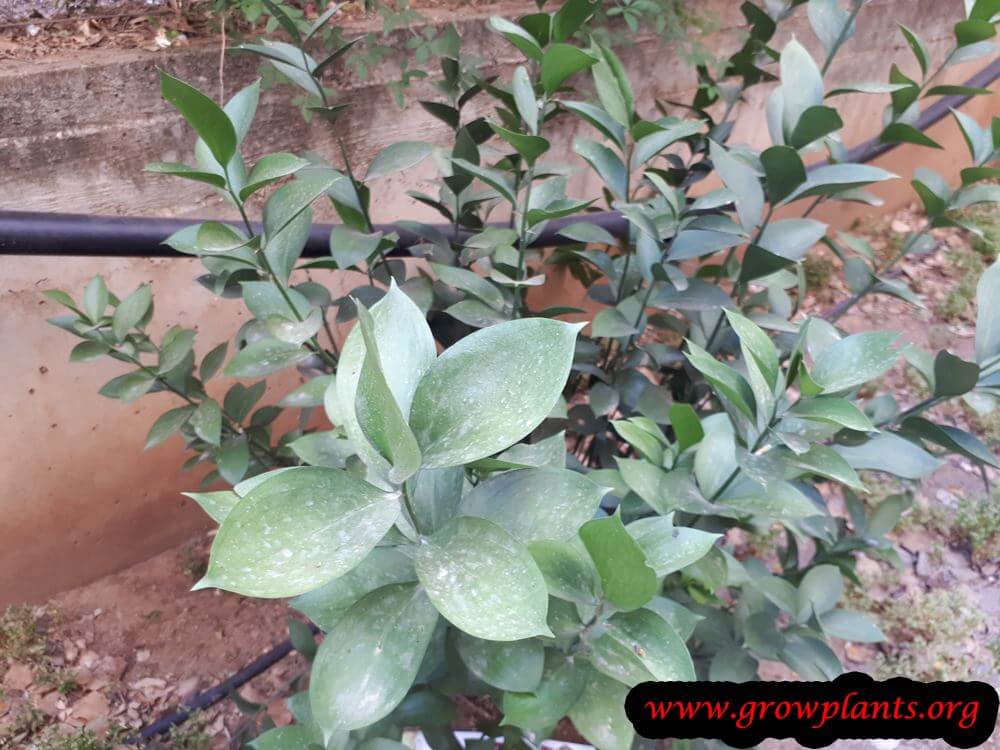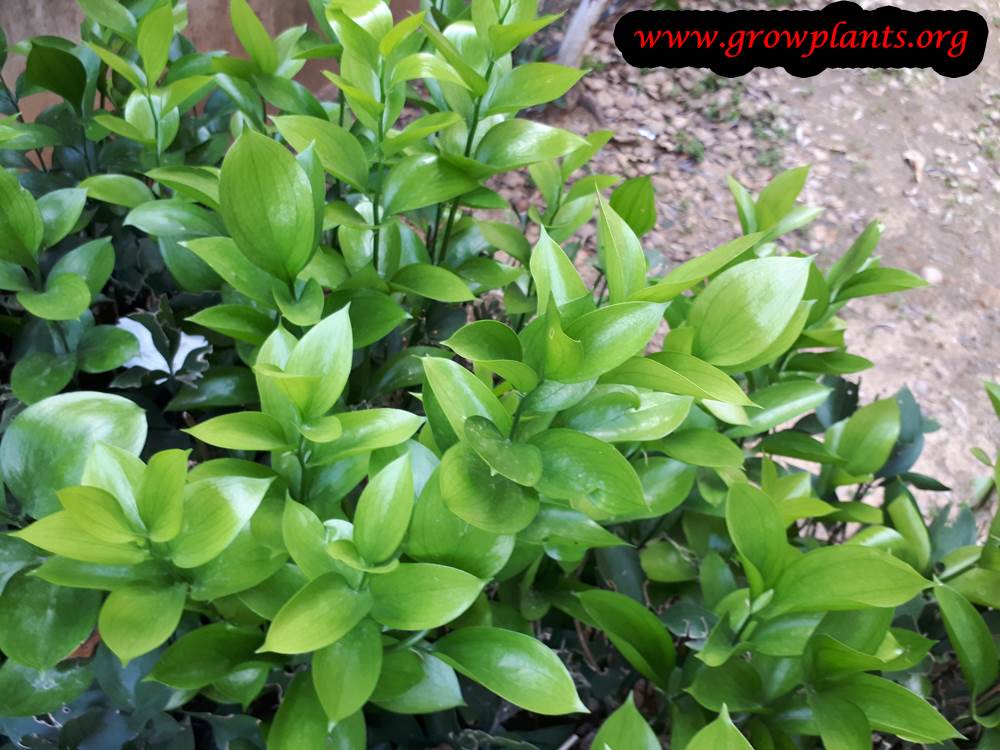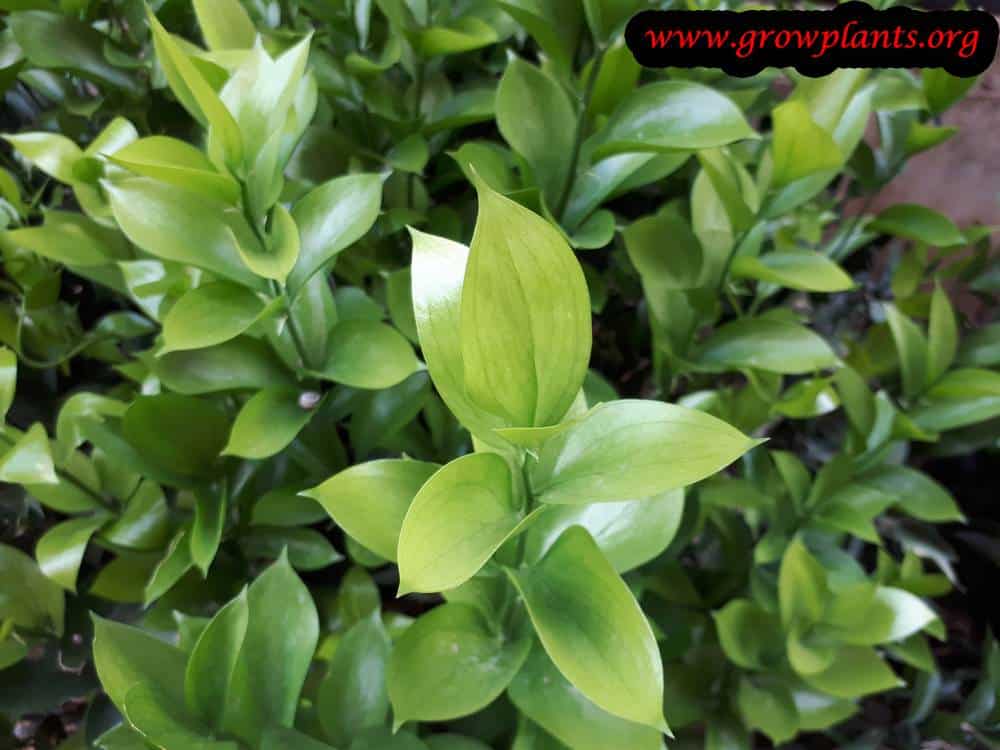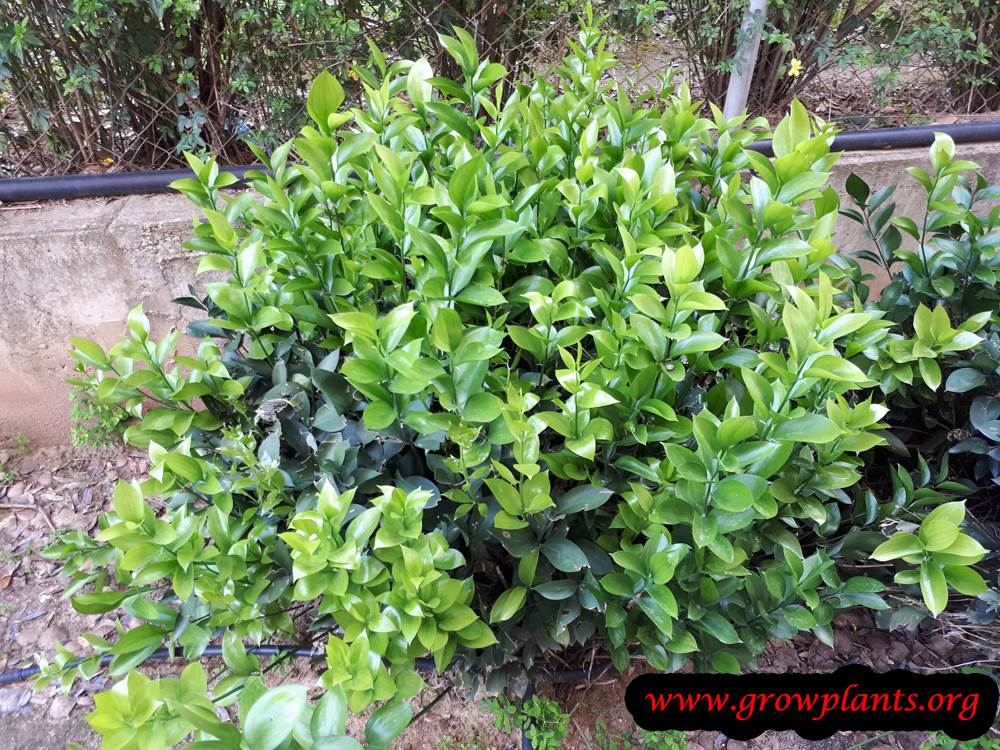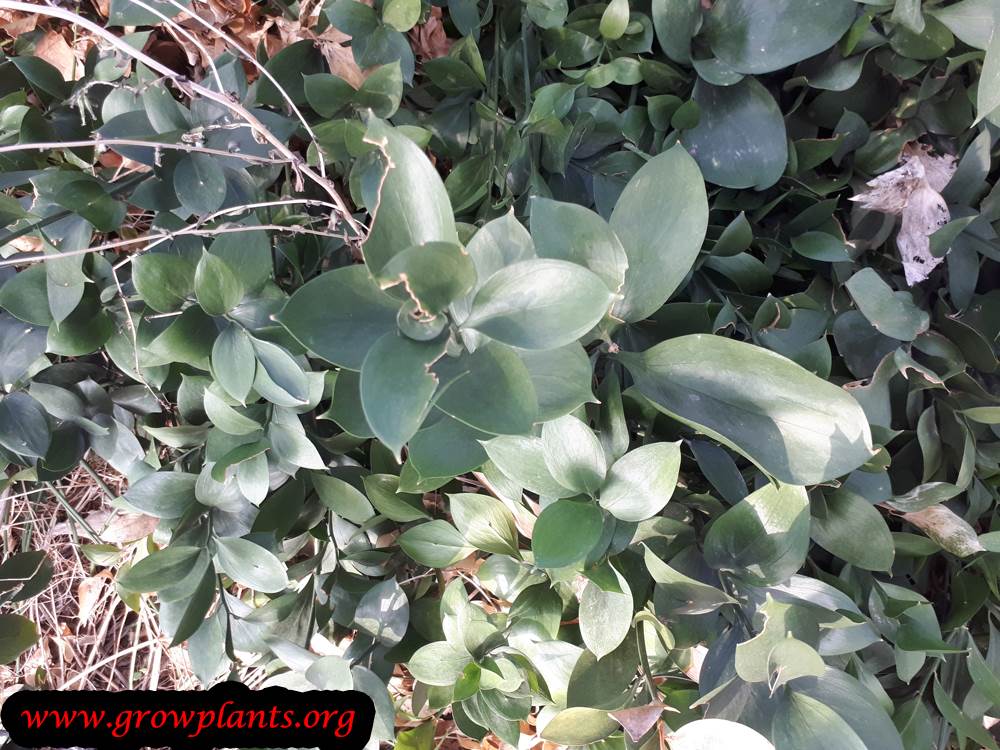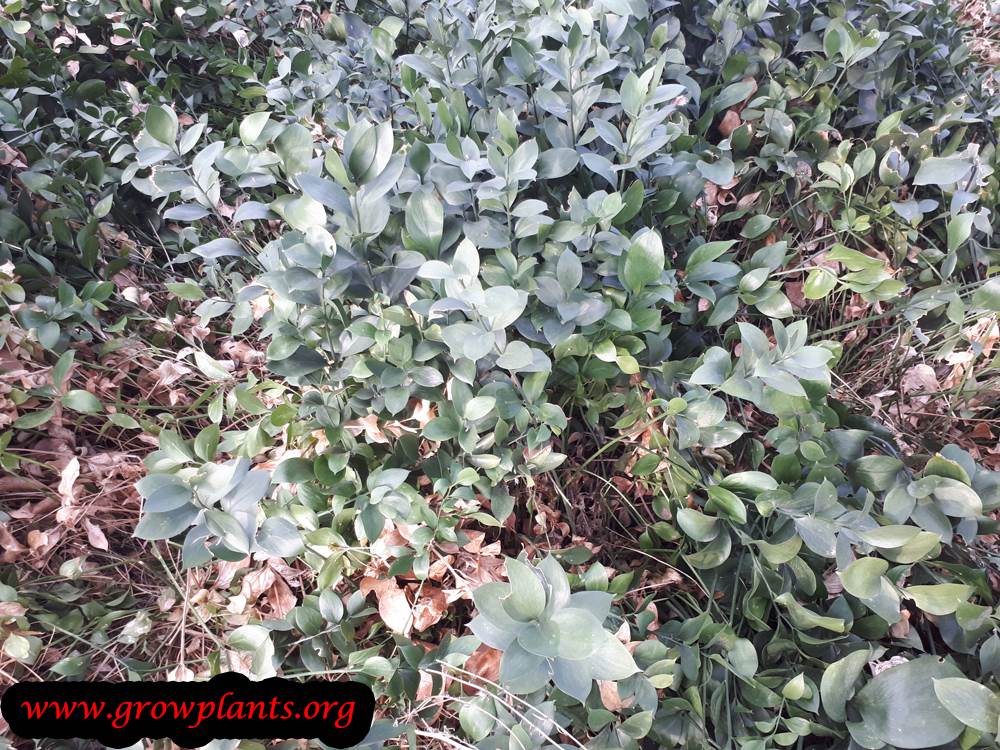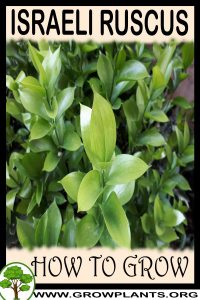
Israeli ruscus plant growing shrub with rhizomes of the genus Ruscus also known as Israel ruscus or Ruscus hypophyllum, Israeli ruscus plant perennial evergreen plant, used as ornamental plant for the leaves as add on for bouquet also the fruits ornamental, it can be drought tolerant, can grow in temperate, mediterranean, subtropical climate or as houseplant and growing in hardiness zone 7-11a.
Leaves color green in elliptic with pointed tops.
Israeli ruscus flower
Flower color green in star shape in the middle there is purple ball and small yellow star the flowers small.
Fruits color red in round shape and very attractive (fruits not edible), season mostly end of the summer to the autumn.
Israeli ruscus plant for sale – Seeds or Plants to Buy
How to grow Israeli ruscus – grow and care:
Well-drained soil, fertilizer 4 times a year
What is the best way to start growing?
Plant / rhizomes / Seed – rare to find / Vegetative reproduction – from cutting
Israeli ruscus plant propagation:
When buy try to find fresh stems, although it can sit a lot of time in the water low probability to get roots in this method, main problem to start from cutting that usually contain preservation material or something that keep the stems alive for long time, that make cutting really hard to do, need to clean the plants for a while switch water every day, after this better to use growth hormones, keep high humidity and moist soil, use peat soil or other soil for cutting and better to sterile with microwave.
Is it necessary to use vegetative reproduction?
Yes, because it’s hard to find to buy the seeds or plants, and it easier to start from cutting than seeds
Difficulties or problems when growing:
?
Planting season:
Spring to autumn, but better in hardiness zone 11 autumn to spring, hardiness zone 10b spring to autumn, hardiness zone 7-10a spring to summer
Pests and diseases:
Snails, Aphids, slugs
Pruning season:
Autumn / Winter
How to prune:
Just for design
Size of the plant:
50-90cm, 20-36 inches (1.5-3 feet)
Growth speed in optimal condition:
Medium growing in the right condition if not it’s very slowly
Water requirement:
Small amount of water / Average amount of water, do not over water and let it dry one in a while before watering
Light conditions in optimal condition for growing:
Half shade better morning shade with afternoon sun / Full shade
Is it possible to grow indoor as houseplant?
Yes, it’s require light but doesn’t like so much sun it’s it a classic plant to grow home
Growing is also possible in a planter /flowerpot / containers:
Yes, it’s not hard to grow in container, need to switch the soil every few years and cut some roots in the process, switch when the soil lose the viability (to absorb water and release) drainage of the soil it’s important to prevent rotten roots, also do not overwater.
Blooming information
Bloom season?
Spring / Summer
General information about the flower:
Star green flowers in the middle there is purple ball and small yellow star the flowers small
Scientific name:
Ruscus hypophyllum
Categories
| Blooming Seasons |
|
|---|---|
| Flower colors |
|
| Climate |
|
| Ornamental parts |
|
| Plant growing speed |
|
| Plant life-form |
|
| Plant Uses |
|
| Planting Season |
|
| Plants sun exposure |
|
| Watering plants |
|
| Hardiness zone |
|


